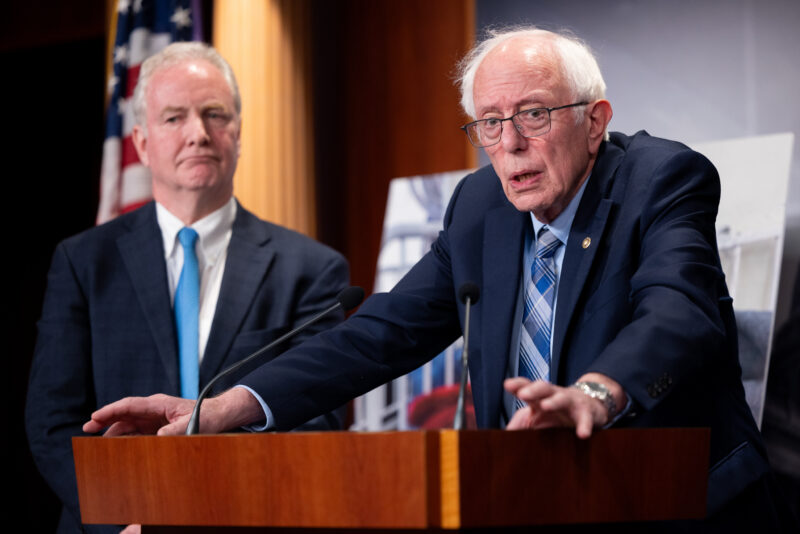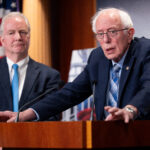Why Ford Foundation President Darren Walker thinks more people need to talk about antisemitism
“The state of Black-Jewish relations is very distressing, because I don't know of a time when our communities have been more divided,” Walker said

Eugene Gologursky/Getty Images for The Ford Foundation
Darren Walker, president of the Ford Foundation, speaks at BUILDing a Just Future: Stories of Strength and Discovery presented by the Ford Foundation's BUILD initiative and The Moth at the Ford Foundation Center for Social Justice
ASPEN, Colo. — When you run an organization focused on promoting social justice, but with the namesake of one of the most virulent antisemites in American history, you have to talk about the uncomfortable history.
Or at least, that’s the attitude taken by Ford Foundation President Darren Walker, who published a blog post reckoning with Henry Ford’s antisemitism just weeks before the Oct. 7 Hamas terror attacks. Since then, Walker has spoken out against rising antisemitism — at times, he said on Tuesday, sparking clashes with his left-leaning staff.
“I’m mindful of the history of the Ford Foundation, and our donor who was most certainly the archetype of the 20th-century American antisemite,” Walker told Jewish Insider in an interview at the Aspen Ideas Festival. “That history absolutely informs my work. But just as important is my own view, this idea that every person ought to live with dignity.”
Walker has helmed the Ford Foundation, which has an endowment of $16 billion, since 2013. Its grantees include Jewish organizations like the Anti-Defamation League. He was in Aspen to speak on a panel about modern antisemitism alongside Carole Zawatsky, CEO of Pittsburgh’s Tree of Life, which recently broke ground on a new synagogue, memorial and museum.
“Right now, and certainly since October 7, there is so much pain and anguish, and a sense of disaffection and abandonment, that a lot of Jewish Americans are rightly feeling,” Walker said. His focus is on building bridges between diverse communities — but he acknowledged that that work has become harder since Oct. 7.
“Many Jewish Americans expected, understandably, there to be more empathy, more allyship and more understanding of the pain that Jews around the world and in America, American Jews, experienced in the aftermath of that terrorist attack on that horrific, horrible day,” said Walker. “I think people rightly were asking the question, ‘What happened to the people we have worked with on the journey for equality, on the journey for justice in this country? We feel abandoned.’”
As president of Ford, “one of the things I believe we have to do is to build the bridges that are essential for our democracy to work,” Walker said. He pointed out that he is glad to talk about himself as a gay Black man, but that putting Americans into boxes means that patriotic American identity is waning. “I celebrate that we live in a country where we embrace our identities, but the most important identity is that of America. And I think we have lost some of that,” said Walker.
“What are you doing to build those bridges, because we have people in our society who get up every day, to destroy those bridges, and who see political gain in dividing us and in keeping us apart,” Walker said.
The challenge in working across lines of difference is particularly hard now among Blacks and Jews, despite the two groups’ historic alliance during the Civil Rights Movement, Walker stated.
“The state of Black-Jewish relations is very distressing, because I don’t know of a time when our communities have been more divided,” Walker said. “Part of that is because there are some who are seeking to divide us and who profit from creating that division. I think part of it is as well, we don’t know our history, and the next generation don’t know our history.”
Some of the strain in ties between the two communities has to do with Jews’ feelings of isolation after Oct. 7, Walker argued. And part of it is, as Walker sees it, that the debate over diversity, equity and inclusion (DEI) programs and ideology among some segments of the Jewish community have made some in the Black community skeptical and disillusioned.
“The idea that someone would perpetrate the notion that diversity in America is bad for the Jews, that DEI in some way is harmful to the health and well-being of the Jewish community, is tragic. It’s tragic. But it also speaks to how vulnerable we all feel,” Walker said. “I don’t think most Jews think that the advancement of Blacks is a bad thing, or that the advancement of Blacks in America has come at their expense, or that we see all around us incompetent Blacks committing all sorts of malfeasance because we’re not up to the job, which is what that narrative has generated.”
Walker is careful not to overstate any success he may have had in urging liberal communities to speak out against antisemitism.
“I’m not sure I’m making progress. I would like to think I’m contributing to opening up a space for people to be in where you won’t be pilloried for expressing some empathy with those who are dealing with the aftermath of Oct. 7,” said Walker.
He has dealt with pushback from some staff on matters related to the war in Gaza and protests in the U.S. One employee asked him to decline an honorary degree that Columbia awarded him this year, urging him to take a symbolic stand against how the university handled anti-Israel encampments and its decision to call in police against protesters in April. He did not decline, but he was up-front about his position.
“One of the things I always say to my team,” Walker said, “is, ‘I owe you clarity,’”











































